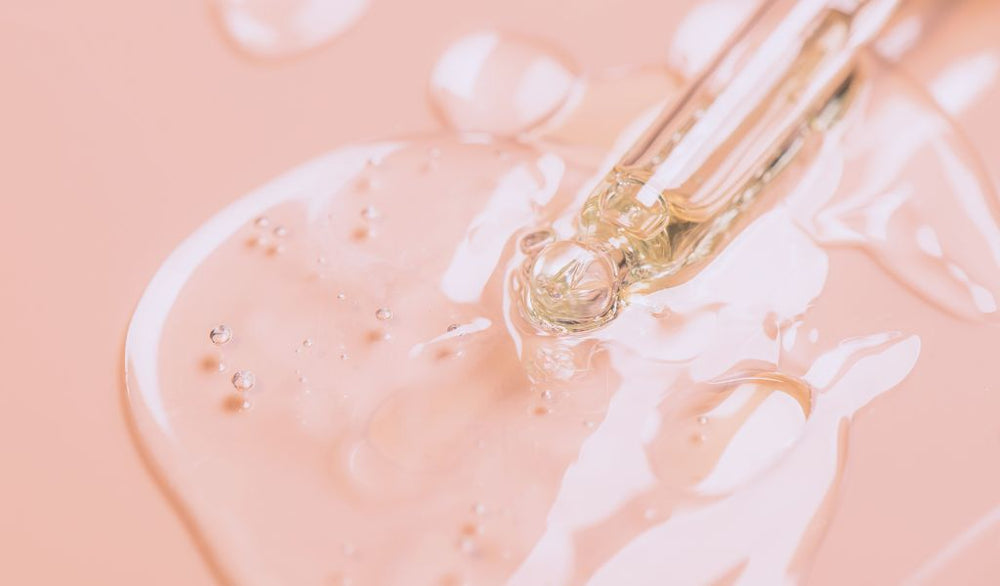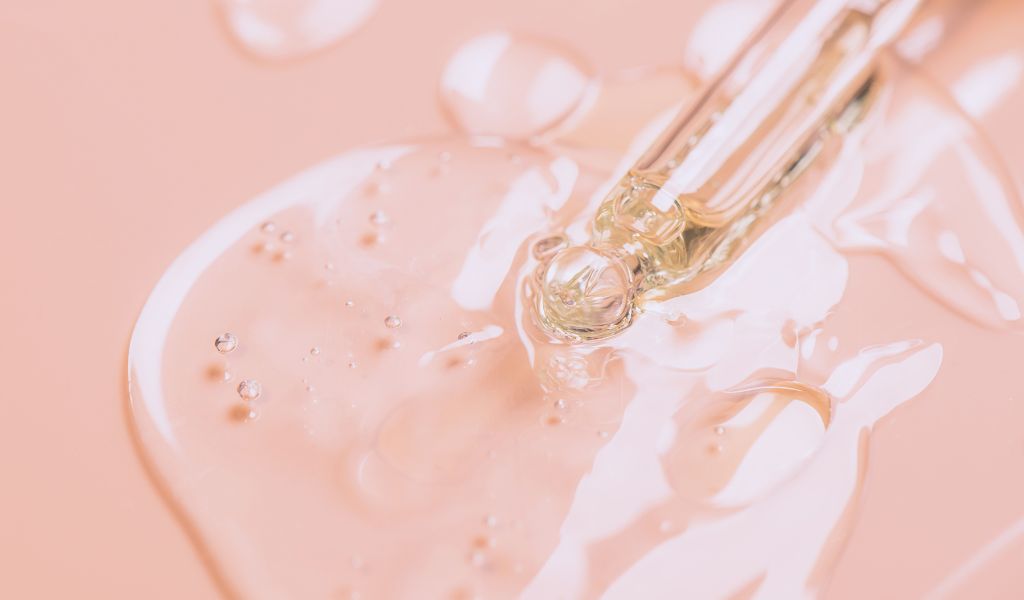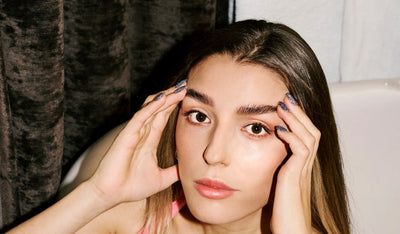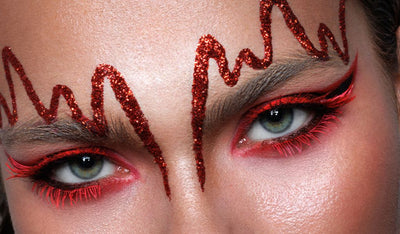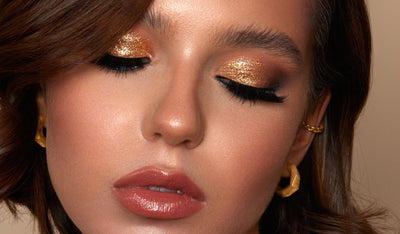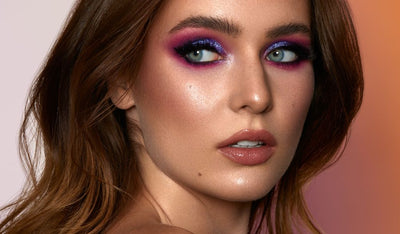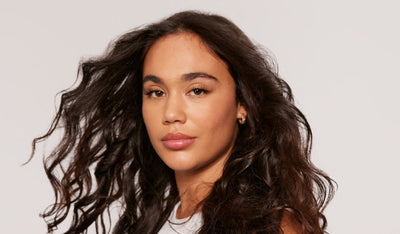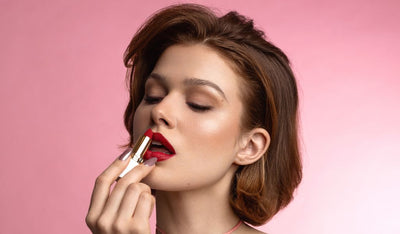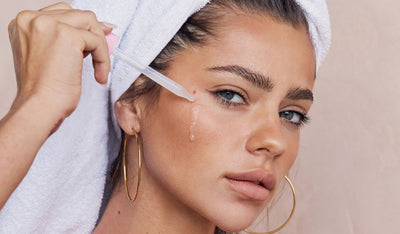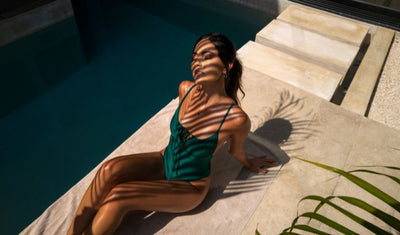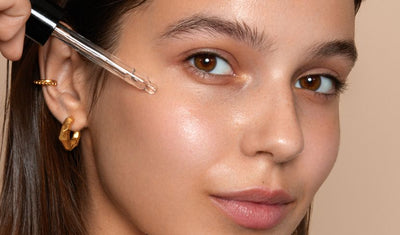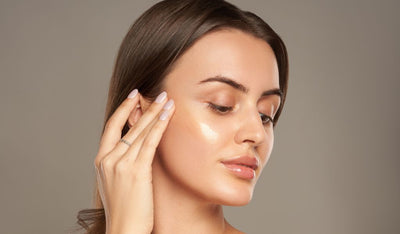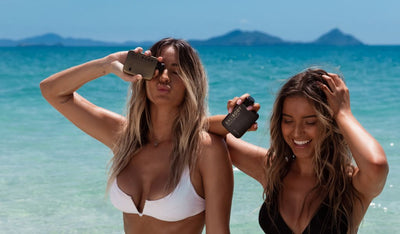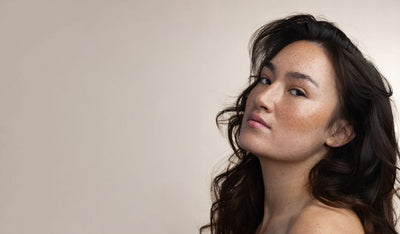Retinol is considered one of the most effective and popular anti-aging ingredients. The EU has now published a new cosmetics regulation that affects, among other things, retinol in cosmetic products. But will retinol be banned as an ingredient in cosmetics in the future? You can find the answer to this question and further tips and information about retinol and the vitamin A family here!
Retinol, retinal, vitamin A: differences and effects
Retinol and retinal are highly effective ingredients in skincare and belong to the vitamin A family. They, like the less powerful retinol esters retinyl acetate and retinyl palmitate, are used in cosmetics primarily to counteract the first signs of aging.
Retinoids stimulate the skin's collagen production and are intended to smooth out fine lines and wrinkles. At the same time, the active ingredients prevent oxidative stress, which can accelerate the skin's aging process.
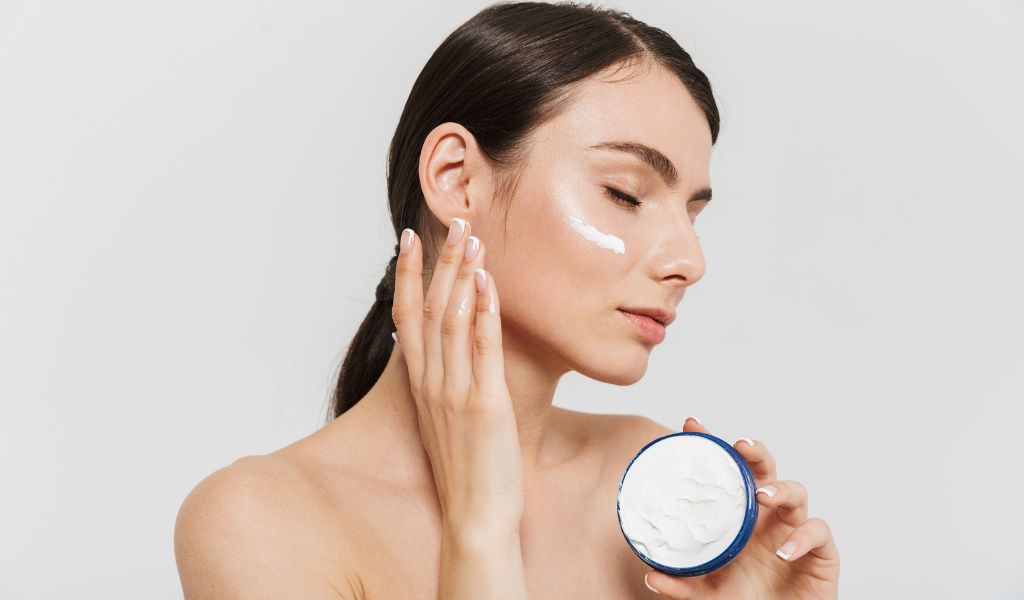
There are numerous anti-aging products with retinol and less strong retinol esters. Concentrations of up to two percent are currently possible. Strong retinoids are also contained in highly effective acne treatments, although these are prescription drugs.
However, the highest concentration of vitamin A (or the related beta-carotene) is not found in skincare, but in dietary supplements. The vitamin supports our eyes in particular and, as a dietary supplement, can support hair growth and skin renewal.
EU regulation: Will retinol be banned?
Don't worry, you will still find effective anti-aging products with retinol concentrations in the future. The EU Commission has not imposed a ban, but rather restrictions. Just like with Alpha Arbutin and a certain UV filter, restrictions on retinol will soon come into force.
The basis for this restriction is, on the one hand, an opinion from the Scientific Committee on Consumer Safety of the EU Commission in 2022, which examined the effects and possible dangers of retinol and retinol esters on the skin and body.
However, the whole process was already set in motion in 2010 by the German Federal Institute for Risk Assessment, which even then called for a limitation of vitamin A in cosmetics.
There were no restrictions in place beforehand and cosmetic companies could in principle use as much retinol in their products as they deemed appropriate.
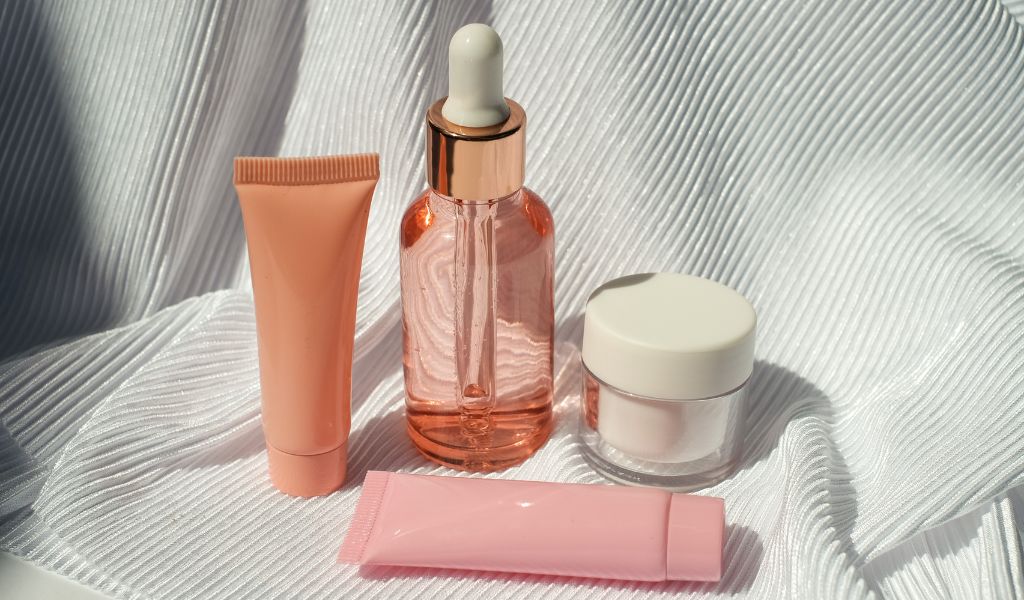
In its 2022 opinion, the EU Commission's Scientific Committee on Consumer Safety explains that retinol and retinyl esters should be limited to 0.05% in body lotions and 0.3% in facial products.
They are granting the cosmetics industry two important deadlines: Firstly, they have until mid-2025 to formulate and market new replacement products. Secondly, they can sell the remaining stock of their non-compliant products until the end of 2026. After that, this will no longer be possible.
Is retinol dangerous?
Why is retinol now being restricted in cosmetics? Is it dangerous for the skin?
Of course, such restrictions are not imposed without reason. The focus is on the well-being and health of consumers.
The reason for the drastic reduction in the retinol concentration in cosmetics is the general intake of vitamin A and a possible overdose of the vitamin. This is because although the concentration of vitamin A is significantly higher in food and dietary supplements compared to cosmetics, corresponding skin care products can increase the overall intake of retinol by around 25% .
Retinol is absorbed through the skin, converted into retinoic acid and can then have biological effects in the body. The more of the product we use, for example a body lotion with retinol instead of a facial serum, the effects are significantly stronger. This also explains the stricter restriction of retinol in body lotions compared to facial products.
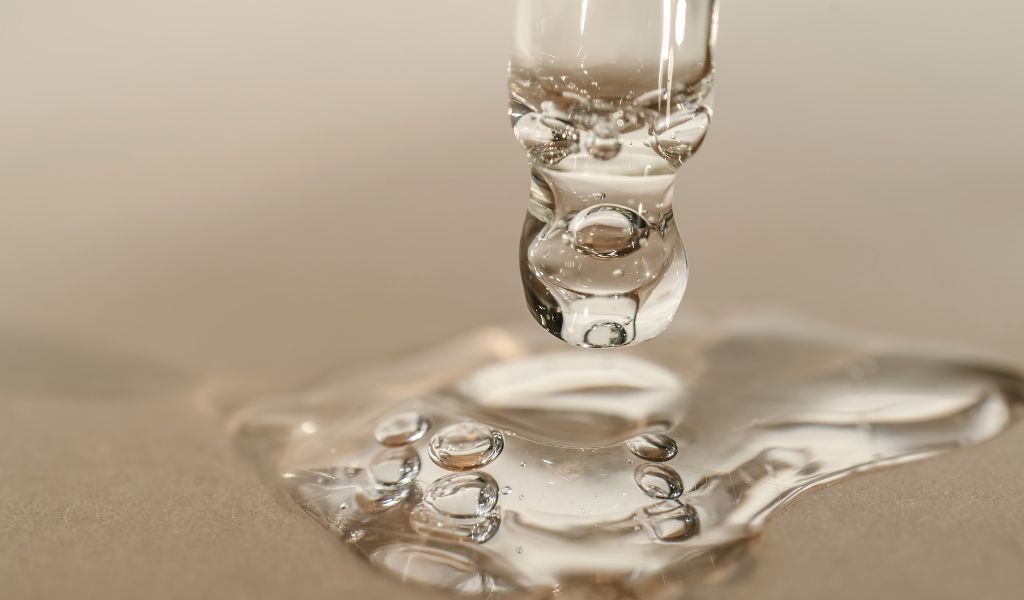
In addition, the average citizen already consumes the recommended daily amount of 1 mg of retinol equivalents (vitamin A). Very few people need vitamin A as a dietary supplement. Quite the opposite: we need to be careful not to exceed the maximum limit of 3 mg per day set by the German Nutrition Society (DGE).
When it comes to vitamin A, the rule “more is better” does not apply. An increased intake of vitamin A and vitamin A-like substances can lead to health consequences, such as changes in the liver and skin, headaches, nausea, increased intracranial pressure and reduced bone density. The latter is particularly important for older people, whose daily maximum limit of retinol equivalents is 1.5 mg.
The Federal Institute for Risk Assessment (BfR) has calculated a worst-case scenario in which a person not only uses various cosmetic products containing retinol on a daily basis, but also uses them in the highest concentrations. This would mean that the consumer would exceed the maximum limit for retinol equivalents by 115%.
By the way: Cosmetics containing retinoids are generally not suitable for pregnant women or those breastfeeding. If you are planning to become pregnant, you should also stop using retinoids as a precaution.
What does this mean for you and your skincare routine?
The values calculated by the BfR are of course extreme values that refer to daily use of several retinol products. This is by no means a normal use that we would recommend. You should only use retinol in high concentrations moderately and slowly get your skin used to it.
So if you are currently using retinol products with a higher concentration moderately and are not noticing any side effects, you can still use the product.
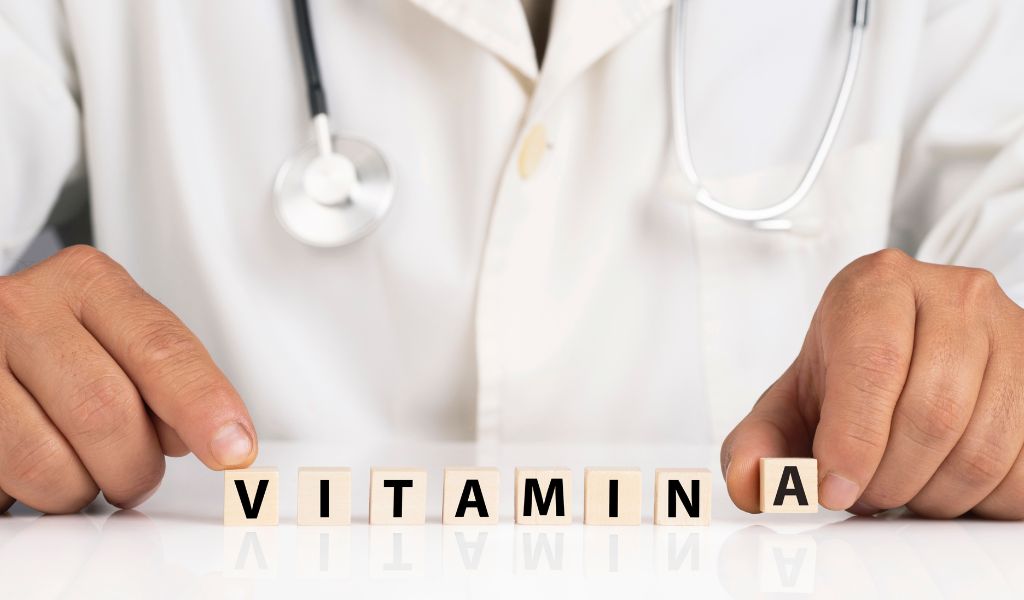
To be on the safe side, you can of course also have a doctor do a blood test to check your vitamin A levels.
Even if everything is perfect, you should by no means stock up on a lifetime supply of retinol products with an increased retinol concentration. This is because skin care has a limited shelf life and retinol in particular, as an unstable active ingredient, should not be used beyond its expiration date.
When unopened, the products usually have a shelf life of two years and should be used within six months of opening them.
Retinol products and alternatives
Are you looking for suitable retinol products to complement your new routine or would you like to test an alternative active ingredient for your skin?
Bakuchiol, for example, is considered the ideal, herbal, but equally effective alternative to retinol. In some products you can also find retinol in combination with bakuchiol, which have the same anti-aging effect and comply with the regulation.
Retinal, also from the vitamin A family, is also an effective alternative. It is considered to be significantly more well-tolerated, but also more effective than retinol.
Geek & Gorgeous - A-Game 5
13,90 €
with the code
-0%
Latest lowest price: 13,90 €
(Prices incl. VAT, plus shipping)

Nø Cosmetics - renew today Retinol Serum
23,90 €
with the code
-0%
Latest lowest price: 22,64 €
(Prices incl. VAT, plus shipping)

meisani - Blue Elixir Retinol Serum
69,00 €
with the code
-0%
Latest lowest price: 69,00 €
(Prices incl. VAT, plus shipping)

MÁDARA Cosmetics - Time Miracle Botanic Retinol Serum
18,90 €
with the code
-0%
Latest lowest price: 18,89 €
(Prices incl. VAT, plus shipping)

Paula's Choice - Clinical 0.3% Retinol + 2% Bakuchiol Treatment
16,90 €
with the code
-0%
Latest lowest price: 16,89 €
(Prices incl. VAT, plus shipping)

MERME - Bakuchiol 3% Facial Serum - Natural Retinol Alternative
28,90 €
with the code
-0%
Latest lowest price: 28,90 €
(Prices incl. VAT, plus shipping)

Transparent Lab - Retinal Age Reverse Cream
35,90 €
with the code
-0%
Latest lowest price: 34,11 €
(Prices incl. VAT, plus shipping)

Nø Cosmetics - shine today Retinoid Eye Roll-On
Transparent Lab - Bakuchiol Firming Cream
ondo Beauty 36.5 - Squalane & Bakuchiol Sleeping Pack Jjon-Jjon
We hope this blog post has helped you and you now feel more confident about using retinol.
Artikel teilen:















